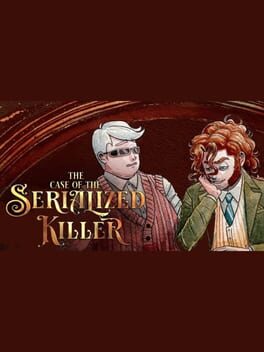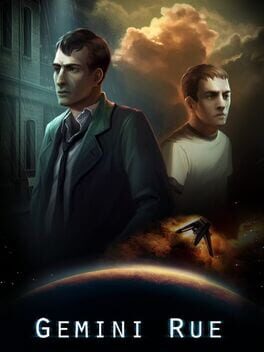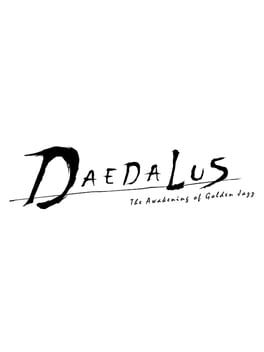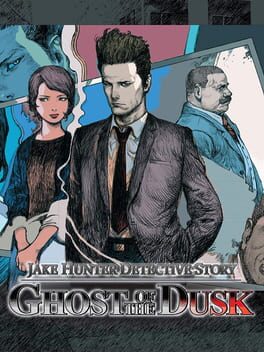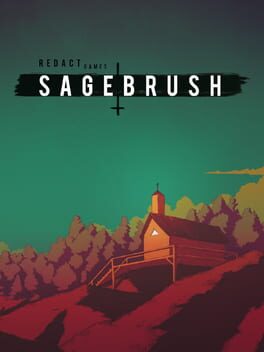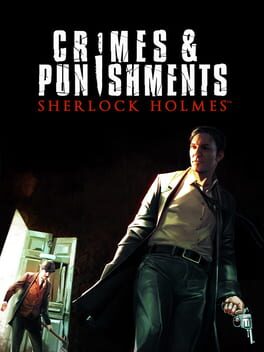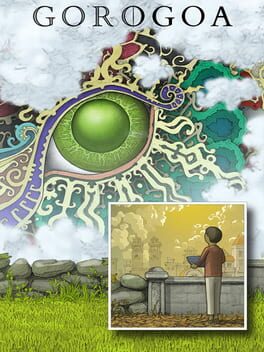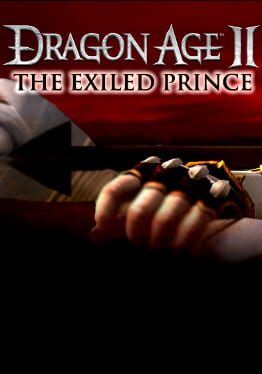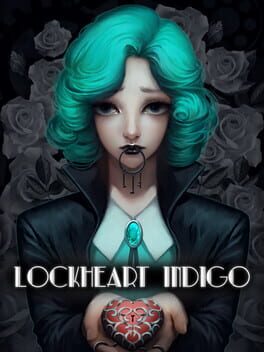bellwoods
This review contains spoilers
If keeping track of the identity swaps in the base game mysteries wasn't mind-melting enough, there's this extremely meta DLC case. A group of actors come to a hotel to perform a crime drama script, which turns out to be based on a real group of criminals who carrying out the deal in the script simultaneously with the rehearsal. Once you solve that mystery, an epilogue reveals that this story itself was a fictional TV show (but still based on real events), and the "real" gang are also actors, but this fake plot is exploited to cause a real murder. On top of that, you have meta references to the format, casting, and stories of the base game (including this one). Whew!
2011
Good grief, the gunplay mechanics. The adventure game puzzles were actually pretty good and logical (the one about getting the gun was particularly clever). But I couldn't stand the fighting. When they introduced the second dodge mechanic, I just threw up my hands and watched a walkthrough--though it turns out there aren't any more action sequences until the climax. Overall it would probably be a 3-star game for someone who is not me. I play puzzle games because I'm not good at shooters and don't really enjoy them, so can I really give that rating to something I couldn't physically complete?
Plot was decent. Low-key cribbing from Blade Runner, but it had good tension and a good payoff. Again, someone else would probably enjoy it a lot. Though there was one element I found kind of nonsensical.
ROT13 for spoilers:
Gur snpg gung gur qbpgbe jnf pbagvahvat gb birefrr guvf qvyncvqngrq snpvyvgl rira jura vg unq pyrneyl tbar gb fuvg, pbecfrf fgerja nobhg gur unyyjnlf, whfg orpnhfr gung jnf gur bayl guvat ur xarj ubj gb qb, jnf npghnyyl n ernyyl vagrerfgvat punenpgre orng gung V rawblrq. Ohg yrg zr trg guvf fgenvtug: gur fcnpr-Lnxhmn vf trggvat crbcyr ubbxrq ba fcnpr-urebva (n qeht jvgu jvguqenjny flzcgbzf frirer rabhtu gb xvyy lbh), fb gung gurl ner gbb jrnx gb erfvfg orvat fuvccrq bhg gb n "eruno snpvyvgl" gung vf npghnyyl sbe pbrepvat gur cngvragf vagb orpbzvat nffnffvaf ol fgneivat gurz naq jvcvat gurve zrzbevrf. Sbetrg jurgure gur crefbanyvgl/pbafpvrapr vf vaangr--jul jbhyq gurl tb gb guvf vafnar nzbhag bs gebhoyr pbaqvgvbavat hajvyyvat, jvguqenjny-fhssrevat, znyabhevfurq xvqanccvat ivpgvzf gb qb guvf wbo vafgrnq bs whfg uvevat crbcyr jub jnag gb or nffnffvaf?
Plot was decent. Low-key cribbing from Blade Runner, but it had good tension and a good payoff. Again, someone else would probably enjoy it a lot. Though there was one element I found kind of nonsensical.
ROT13 for spoilers:
Gur snpg gung gur qbpgbe jnf pbagvahvat gb birefrr guvf qvyncvqngrq snpvyvgl rira jura vg unq pyrneyl tbar gb fuvg, pbecfrf fgerja nobhg gur unyyjnlf, whfg orpnhfr gung jnf gur bayl guvat ur xarj ubj gb qb, jnf npghnyyl n ernyyl vagrerfgvat punenpgre orng gung V rawblrq. Ohg yrg zr trg guvf fgenvtug: gur fcnpr-Lnxhmn vf trggvat crbcyr ubbxrq ba fcnpr-urebva (n qeht jvgu jvguqenjny flzcgbzf frirer rabhtu gb xvyy lbh), fb gung gurl ner gbb jrnx gb erfvfg orvat fuvccrq bhg gb n "eruno snpvyvgl" gung vf npghnyyl sbe pbrepvat gur cngvragf vagb orpbzvat nffnffvaf ol fgneivat gurz naq jvcvat gurve zrzbevrf. Sbetrg jurgure gur crefbanyvgl/pbafpvrapr vf vaangr--jul jbhyq gurl tb gb guvf vafnar nzbhag bs gebhoyr pbaqvgvbavat hajvyyvat, jvguqenjny-fhssrevat, znyabhevfurq xvqanccvat ivpgvzf gb qb guvf wbo vafgrnq bs whfg uvevat crbcyr jub jnag gb or nffnffvaf?
Like some of the other games in the series, Daedalus has a pretty solid mystery shackled to gameplay that tests your commitment to finish it.
This Saburo Jinguji entry (under his original name here, rather than "Jake Hunter") ditches menu-based adventure gaming for a 360-degree camera view, liberal point-and-click investigation, a conversation mechanic, multiple endings... all of which I appreciated. But the implementation was seriously lacking. The UI appears to be trapped inside of a soap bubble. Some of the elucidation sections were poorly worded, if not completely opaque. And there was a persistent problem with options that should be possible to investigate in any order apparently being implemented linearly. E.g. Saburo says "I need to investigate the hardware store and the church," going to either of those locations has him act as if he is supposed to be there, but the conversation at the hardware store will not trigger until you've seen the one at the church, even though there is no logical relation between them. Lots of little things that made a decent story kind of a slog.
Anyway, I got this on sale for PS4 for $6, and at that price it was an enjoyable enough experience, believe it or not.
This Saburo Jinguji entry (under his original name here, rather than "Jake Hunter") ditches menu-based adventure gaming for a 360-degree camera view, liberal point-and-click investigation, a conversation mechanic, multiple endings... all of which I appreciated. But the implementation was seriously lacking. The UI appears to be trapped inside of a soap bubble. Some of the elucidation sections were poorly worded, if not completely opaque. And there was a persistent problem with options that should be possible to investigate in any order apparently being implemented linearly. E.g. Saburo says "I need to investigate the hardware store and the church," going to either of those locations has him act as if he is supposed to be there, but the conversation at the hardware store will not trigger until you've seen the one at the church, even though there is no logical relation between them. Lots of little things that made a decent story kind of a slog.
Anyway, I got this on sale for PS4 for $6, and at that price it was an enjoyable enough experience, believe it or not.
2018
In many ways a standard walking sim, but there's an ineffable something that, compared to others in the genre, Sagebrush absolutely nails. Is it the way it humanizes its subject matter--often sensationalized? The protagonist, maybe?
I'll say this: a lot of environmental storytelling games have an "empty showroom" feel, where a town (lighthouse, forest, what-have-you) has been conveniently vacated for us to gawk at. The protagonist is oddly removed from the proceedings--a player-insert, or perhaps voyeur. (As much as I liked Gone Home, I didn't buy that these people were related to me.) In others, the spotlight is on the protagonist's psyche, with the environment rendered little more than a pretty but irrelevant set-piece for them to navel-gaze at.
Sagebrush doesn't fall into either of these traps. The protagonist's presence makes the story of the people who lived here much more real, and her trajectory through the environment tells a story about her, too. The tense moments reflect a particular person's fears. I thought these elements were interwoven really well, telling a story about the mundane horror of cults: thought control, sexual abuse, and shame at having been abused. I can't say I loved some of the pixel-hunting for keys, but I found it very emotionally affecting.
I'll say this: a lot of environmental storytelling games have an "empty showroom" feel, where a town (lighthouse, forest, what-have-you) has been conveniently vacated for us to gawk at. The protagonist is oddly removed from the proceedings--a player-insert, or perhaps voyeur. (As much as I liked Gone Home, I didn't buy that these people were related to me.) In others, the spotlight is on the protagonist's psyche, with the environment rendered little more than a pretty but irrelevant set-piece for them to navel-gaze at.
Sagebrush doesn't fall into either of these traps. The protagonist's presence makes the story of the people who lived here much more real, and her trajectory through the environment tells a story about her, too. The tense moments reflect a particular person's fears. I thought these elements were interwoven really well, telling a story about the mundane horror of cults: thought control, sexual abuse, and shame at having been abused. I can't say I loved some of the pixel-hunting for keys, but I found it very emotionally affecting.
2017
I played the demo of this at a game development conference over a decade ago (sheesh!), loved it, and in my usual manner swore I would get around to the full 2017 version definitely, maybe, at some point. I finally did, and had a great time. Wonderfully unique puzzle game, and while some might find it a little on the short side, I felt like all the elements were watchmaker-perfect in their integration. No wasted space; it knows exactly what it wants to do and it does it.
Gorogoa is a game about perspective, both in its central puzzle mechanics and its story. A dragon threatens a city (as these stories go) and the only way to appease it is a sacrifice. Thus a boy goes on a quest for five fruits. But, as the player eventually susses out, this journey can only be completed by navigating through scenes from the rest of the boy's life, after he has already failed, and the city is destroyed and then rebuilt. You end up manipulating not only the locations in the city, but eventually thought, time, and memory. It's an interesting, fable-like structure. Combined with the detailed and delicate art, the overall effect put me in mind of a Colin Thompson storybook. But I'm mainly giving it 5 stars because fairly cluing puzzles with zero text is incredibly difficult, and this game does it incredibly well. I always knew the shape of what I was supposed to do, if not the "how".
Gorogoa is a game about perspective, both in its central puzzle mechanics and its story. A dragon threatens a city (as these stories go) and the only way to appease it is a sacrifice. Thus a boy goes on a quest for five fruits. But, as the player eventually susses out, this journey can only be completed by navigating through scenes from the rest of the boy's life, after he has already failed, and the city is destroyed and then rebuilt. You end up manipulating not only the locations in the city, but eventually thought, time, and memory. It's an interesting, fable-like structure. Combined with the detailed and delicate art, the overall effect put me in mind of a Colin Thompson storybook. But I'm mainly giving it 5 stars because fairly cluing puzzles with zero text is incredibly difficult, and this game does it incredibly well. I always knew the shape of what I was supposed to do, if not the "how".
2020
